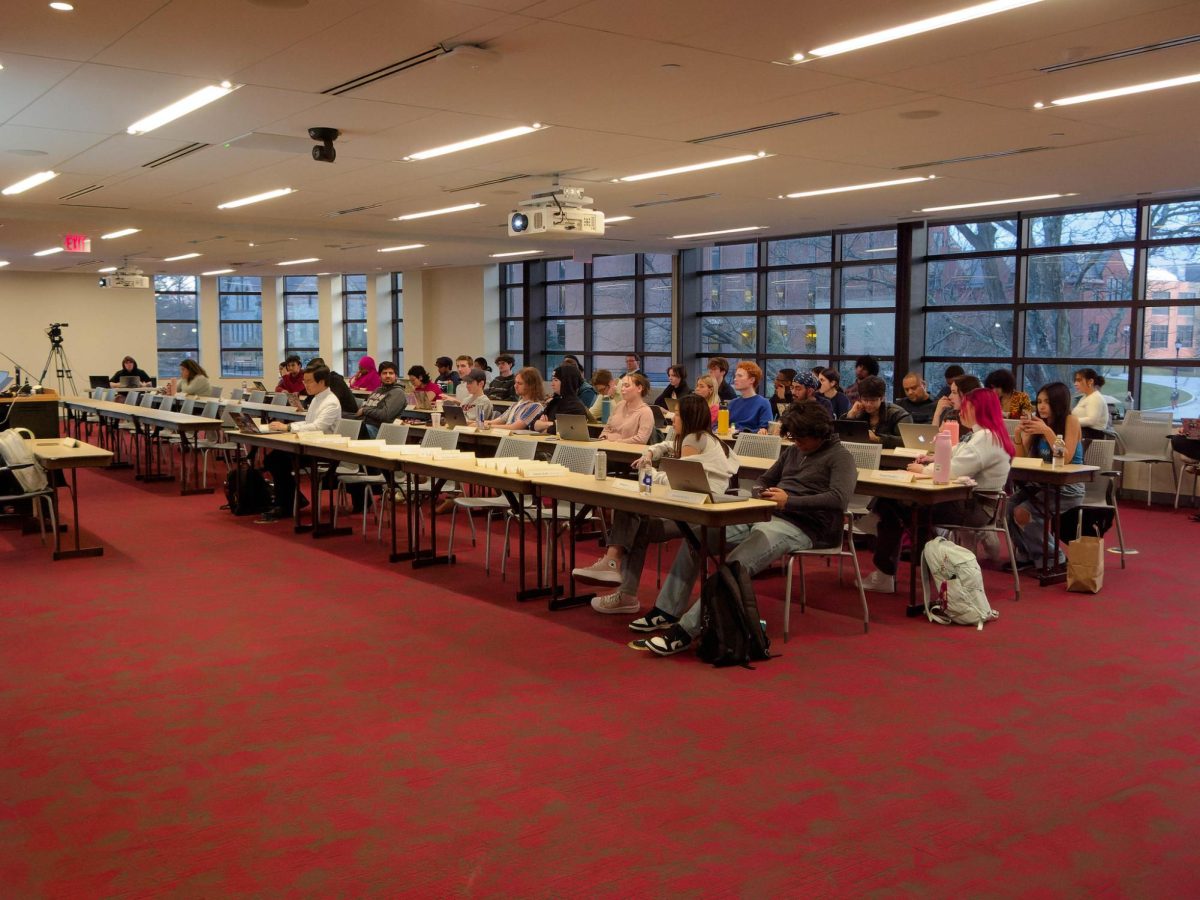By making a few simple changes in the year following their baby’s birth, one University of Massachusetts researcher thinks mothers may be able to prevent the onset of chronic diseases like diabetes.

Lisa Chasan-Taber, a UMass epidemiology professor, has been awarded a five-year, $2.56 million grant to assess the influence of targeted interventions after pregnancy on the development of adult onset diabetes among 300 women in western Massachusetts.
The study will enroll Latina women from Puerto Rico and the Dominican Republic, where traditional foods are high in calories and physical activity is low, Chasan-Taber said.
Excess weight and a sedentary lifestyle are major risk factors for diabetes, but women have a chance to reduce their risk before it becomes too late.
Latina women can develop diabetes during pregnancy, though this condition “resolves when she has the baby so it seems like everything is fine,” Chasan-Taber said. However, over half of these women will develop adult onset diabetes, also known as Type 2 diabetes.
“Women ironically have this opportunity to have this crystal ball look into their future risk of diabetes that men don’t have and they have it through being pregnant,” Chasan-Taber said. “So pregnancy puts you in this state where you can actually see what may happen to you in the future.”
Chasan-Taber and her team will recruit pregnant women for the study who have been diagnosed with abnormal levels of glucose, the hormone that regulates blood sugar. After the women give birth, the interventions will begin.
Working with a team from the University of California, San Diego, the UMass researchers will provide women with a variety of resource materials, such as tip sheets about being active and reading food labels.
They will also help women incorporate small amounts of physical activity into their daily lives. Chasan-Taber said this could be as easy as parking farther away from the mall or using the stairs instead of the elevator. By gradually increasing the women’s activity, researchers hope to get them to do 30 minutes of moderately intensive exercise each day.
“We’re trying to make these subtle lifestyle changes that will sustain over time,” Chasan-Taber said.
The particular interventions will be tailored to where each woman stands in her readiness to make lifestyle changes.
The idea is to make the most of the critical period immediately following pregnancy when women are very responsive to change, according to Chasan-Taber. Latina women could benefit from these interventions because unlike other subpopulations that are more genetically predisposed to diabetes, their risk is more closely tied to activity levels and nutrition.
“That’s great for us because that means we can actually go in and make a difference. These are modifiable factors, things we can change,” Chasan-Taber said.
Researchers will determine the success of the interventions by looking at biomarkers, including insulin resistance, at six and 12 months after the women give birth. They will compare these biomarkers to a set of baseline levels taken at the beginning of the study to see if their risk for Type 2 diabetes has been reduced.
“If we can make changes with this group, we’re hoping that we could then expand these kinds of interventions to a larger population,” Chasan-Taber said.
Future research could look at the impact on the child’s risk of diabetes, Chasan-Taber added.
David Barnstone can be reached at [email protected].












